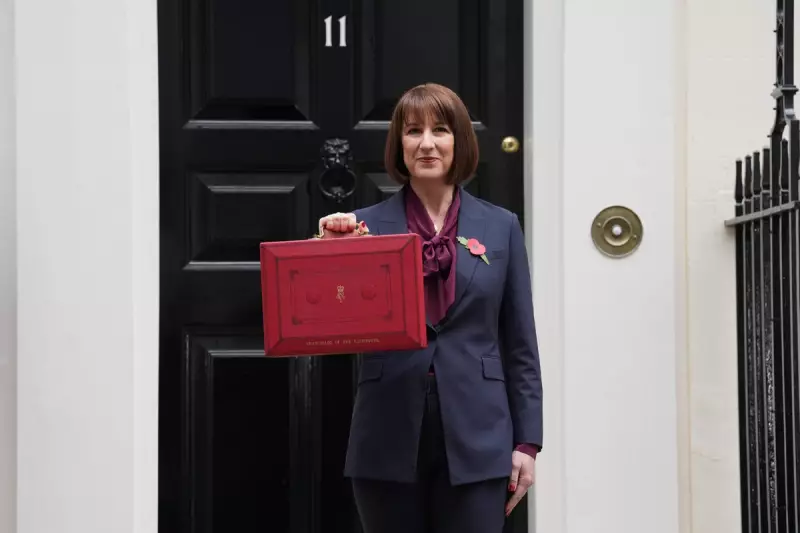
Chancellor Rachel Reeves has unveiled a significant new taxation plan for electric vehicle owners that will see them paying per mile driven from 2028. The controversial Electric Vehicle Excise Duty scheme represents a major shift in how road users are taxed as the government grapples with falling fuel duty revenues.
The new pay-per-mile scheme explained
Under the proposals confirmed in Wednesday's budget announcement, pure battery electric vehicle owners will pay 3 pence per mile in addition to standard Vehicle Excise Duty rates. Meanwhile, plug-in hybrid vehicle drivers will face a lower rate of 1.5 pence per mile.
The system is scheduled to come into effect in April 2028 and is expected to generate substantial revenue. According to Office for Budget Responsibility projections, the new scheme could raise as much as £1.4 billion, helping to address the growing shortfall in fuel duty receipts.
Rachel Reeves defended the policy in Parliament, stating: "Because all cars contribute to the wear and tear on our roads, I will ensure that drivers are taxed according to how much they drive, and not just by the type of car they own."
How the mileage charging will work
The proposed system aims to avoid real-time vehicle tracking, instead relying on drivers to estimate their annual mileage and pay the 3p-per-mile charge in advance. If motorists drive fewer miles than estimated, the balance will roll over to the following year. Those exceeding their estimate will need to pay additional charges.
Based on current driving patterns, the Treasury estimates that the average EV driver covering approximately 8,900 miles annually would pay around £279 per year from 2028 under the new scheme. This would be in addition to existing Vehicle Excise Duty, which currently stands at £10 for the first year and £195 thereafter for electric vehicles.
The government's move comes as data reveals Britons are driving significantly fewer miles than in previous decades. Average annual mileage has dropped from 9,000 miles twenty years ago to just 7,100 miles today, contributing to declining fuel duty revenues alongside the transition to electric vehicles.
Industry reaction and concerns
The announcement has drawn sharp criticism from automotive industry leaders and environmental campaigners. Matt Galvin, managing director of Polestar UK, described the proposals as sending a "confused message" from the government.
"It is farcical that fuel duty on cars burning petrol or diesel, contributing to respiratory diseases, has not been raised since 2011," Galvin stated. "This is clearly a confused message from the Government, on one hand recently incentivising the move to zero-emission driving and on the other planning to take this away with tax rises."
The Society of Motor Manufacturers and Traders (SMMT) expressed strong reservations, with a spokesperson warning that "introducing such a complex, costly regime that targets the very vehicles manufacturers are challenged to sell would be a strategic mistake."
Tanya Sinclair, CEO of Electric Vehicles UK, highlighted the mixed signals in the budget: "Today's Budget sends mixed signals, which will impact market confidence. On the one hand, funding for EV grants and chargers are welcome. But on the other, the number of EVs using those chargers will grow more slowly with the proposed pay-per-mile charges for EVs."
Additional budget measures for motorists
Alongside the controversial EV tax announcement, the Chancellor revealed several other significant measures affecting drivers and the automotive industry:
Electric Car Grant extension: An additional £1.3 billion in funding will extend the Electric Car Grant to 2030, bringing total funding to £2 billion. The grant offers discounts of either £1,500 or £3,750 on new electric cars meeting stringent Science Based Targets.
Expensive Car Supplement threshold increase: The threshold for the additional VED payment has been raised from £40,000 to £50,000, saving over a million motorists £440 annually according to Treasury estimates.
Charging infrastructure investment: A further £200 million will accelerate the rollout of EV charging points, alongside 100% business rates relief for EV charge points for the next decade.
However, the budget contained no movement on equalising VAT between home charging at 5% and public charging at 20%, a measure many in the industry had been calling for.
As consultations on the new pay-per-mile scheme begin, electric vehicle drivers face the prospect of higher running costs from 2028, marking a significant shift in the economics of zero-emission motoring in Britain.





